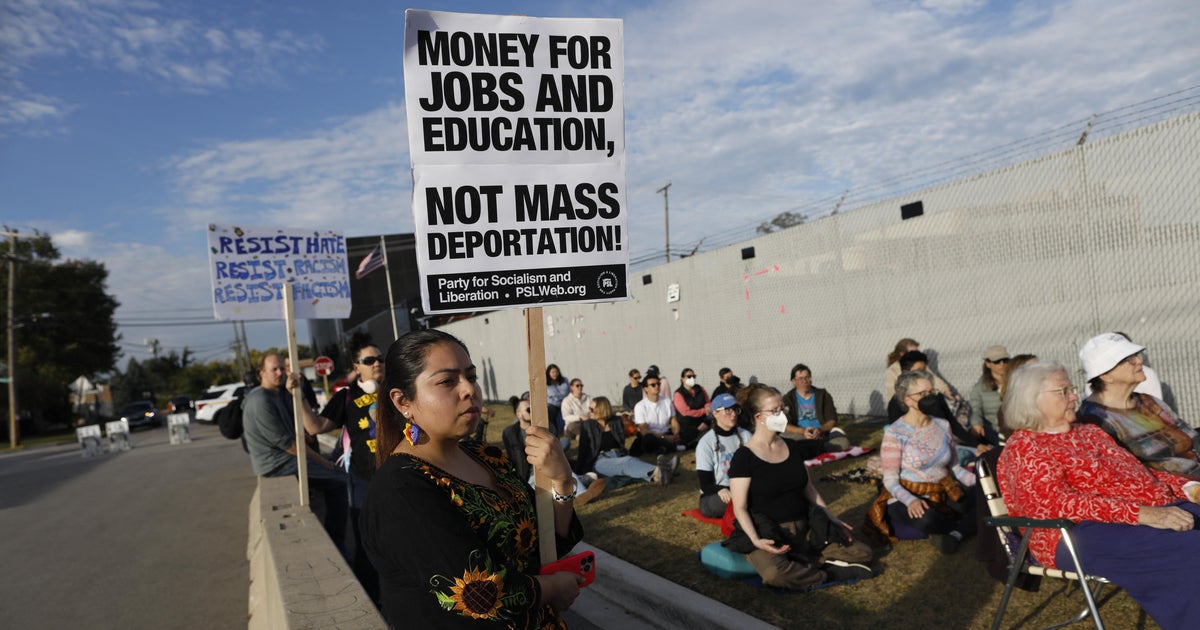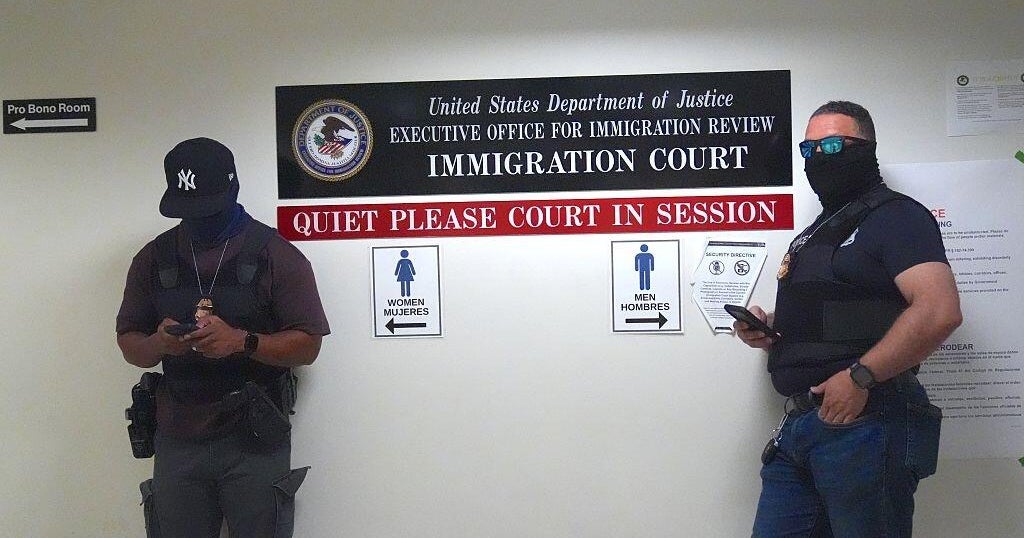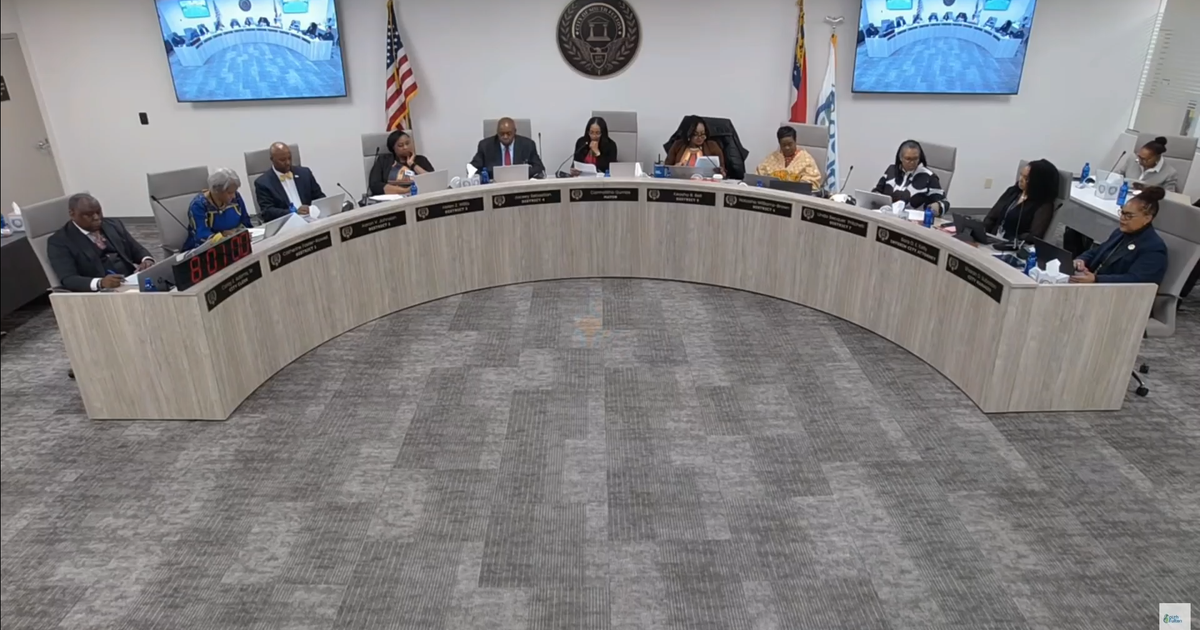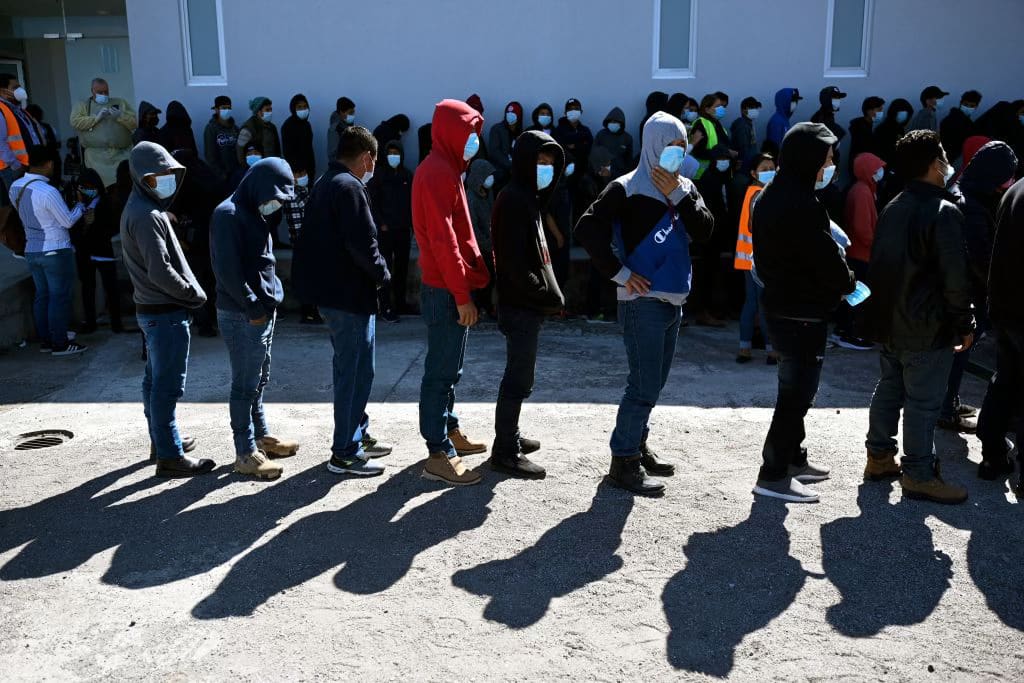Biden officials declined to offer legal status to hundreds of thousands of migrants amid border concerns
Washington — President Biden's top immigration advisers refrained from offering nearly 400,000 migrants a chance to work and live in the U.S. legally under a program known as Temporary Protected Status (TPS) due to concerns about a potential spike in border crossings, three people familiar with the internal debate told CBS News.
Earlier this year, officials at the Department of Homeland Security (DHS) developed a plan to expand the decades-old TPS program for migrants from Nicaragua, determining that an expansion was merited given the deteriorating conditions in the Central American country, the people said, requesting anonymity to discuss internal deliberations. In recent years, Nicaragua has seen record numbers of citizens migrate, mostly to the U.S., to flee poverty and government crackdowns.
The proposal to expand or redesignate the TPS program for Nicaragua would have made nearly 400,000 Nicaraguan migrants in the U.S. eligible to apply for government work permits and deportation protections, according to an internal government estimate. The plan was internally considered at a high level, and sent to the White House and other agencies for clearance.
But the administration ultimately decided to stop short of expanding TPS eligibility, at least for now, due in part to concerns from high-ranking White House officials who feared that announcing a generous immigration program could contribute to a sharp increase in migration along the U.S.-Mexico border, where unlawful crossings have dropped sharply since early May, the sources said.
Instead, the administration announced Tuesday it would extend the TPS designations for Nicaragua and three other countries that the Trump administration sought to terminate, allowing existing beneficiaries to renew their status but leaving the programs closed to new applicants.
TPS does not benefit migrants who have yet to reach the U.S., but over the years, some government officials have voiced concern that expansions of the program nevertheless act as "pull factors" that fuel unlawful migration, even if the new arrivals don't qualify for it. Nicaraguans journeyed to the U.S.-Mexico border in record numbers last year, though arrivals from Nicaragua there have slowed recently.
"That has been caught up in the fear that any redesignation is a magnet," one of the sources said.
Migrant advocates and some Democratic lawmakers have cast doubt on the pull factor concerns, saying the dire conditions in Nicaragua and other crisis-stricken countries clearly warrant TPS redesignations.
"Any claims that TPS is a pull factor are just false," Democratic New Jersey Sen. Bob Menendez told CBS News. "Studies after studies have repeatedly shown that TPS designations are not correlated with irregular migration. On the contrary, if anything, TPS helps vulnerable people stay in their home countries because it allows TPS holders in the United States to send money back home."
Menendez said he was worried that political concerns were influencing the administration's decision-making on immigration.
"The political consideration, which is just 'let's be harsh,' which seems to be what the administration has adopted from where they originally were, and following the Republican mantra, is never going to satisfy Republicans in Congress. But most importantly, it's really not going to solve the problem," he added.
The White House declined to comment. Representatives for DHS did not answer questions about the TPS decision-making process.
While the administration has not authorized an expansion of TPS eligibility for Nicaraguans, officials could reverse course in the future. DHS said Tuesday it "closely monitors conditions around the world to assess whether new TPS designations are warranted."
In addition to deliberations around TPS eligibility for Nicaraguans, the administration has also been debating whether to expand a similar program for Venezuelan migrants.
While some officials worry that TPS expansions for these countries could disrupt the lower levels of migration recorded along the southern border in recent weeks, the administration has been facing intensifying pressure from Democratic allies and advocates to make additional migrants eligible for TPS.
Democratic mayors, including New York City Mayor Eric Adams, have forcefully pushed the administration to dramatically expand TPS, so that migrants arriving to their jurisdictions can work legally and not rely on city services, which have struggled to accommodate the new arrivals.
Many of the migrants who have arrived in New York, Denver, Chicago, Washington and other large cities over the past year, including those bused there by officials in Texas, hail from Nicaragua and Venezuela. While asylum-seekers can ask for work permits, they're not eligible for them until 180 days after they apply for asylum, and the wait times are often longer due to a massive backlog of immigration cases.
The current TPS designations for Nicaragua and Venezuela only apply to migrants from those countries who arrived in the U.S. before January 1999 and March 2021, respectively. As of 2021, there were 4,250 Nicaraguans and 29,193 Venezuelans with TPS, government data show. But if those countries are redesignated, hundreds of thousands of migrants who have crossed the U.S. southern border recently would be eligible for TPS.
Since the start of fiscal year 2022, approximately 259,000 Nicaraguans and 284,000 Venezuelans have been processed along the U.S.-Mexico border, both record highs, according to government figures. Moves to expand TPS for these nationalities would also benefit Nicaraguans who have been living in the U.S. for years without permanent legal status.
Nicaragua and Venezuela, both governed by repressive leftwing regimes, have faced a mass exodus of their citizens in recent years. More than 7 million people have fled economic catastrophe and authoritarian rule in Venezuela to settle in other Latin American nations and the U.S., while hundreds of thousands of Nicaraguans have traveled to neighboring Costa Rica or the U.S.-Mexico border.
While a record number Nicaraguans and Venezuelans crossed the U.S.-Mexico border illegally last year, unlawful entries by these migrants have dropped significantly this year after some policy changes.
In January, the Biden administration started expelling migrants from Cuba, Haiti, Nicaragua and Venezuela who crossed the southern border illegally to Mexico, which agreed to take back these nationalities, first under the now-expired Title 42 public health order and now under regular U.S. immigration law. The administration paired that return policy with a program that allows up to 30,000 migrants from these four countries to fly to the U.S. legally per month if they have American-based financial sponsors.
Daily illegal crossings along the southern border jumped to 10,000, an all-time high, in the days before officials discontinued the Title 42 pandemic-era restrictions on May 11. But they subsequently plummeted, defying predictions that Title 42's end would trigger a spike in border arrivals. During the first week of June, Border Patrol averaged just over 3,000 daily migrant apprehensions.




